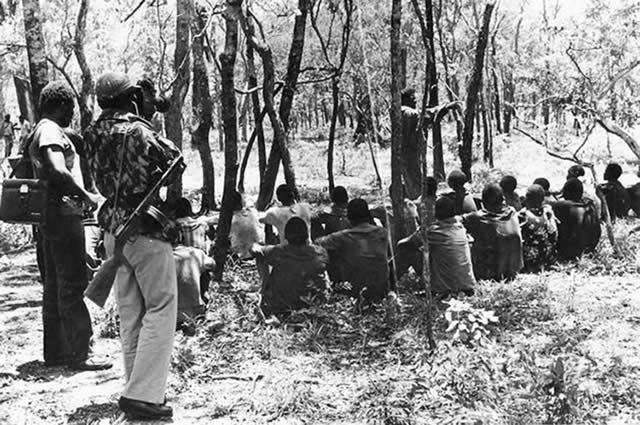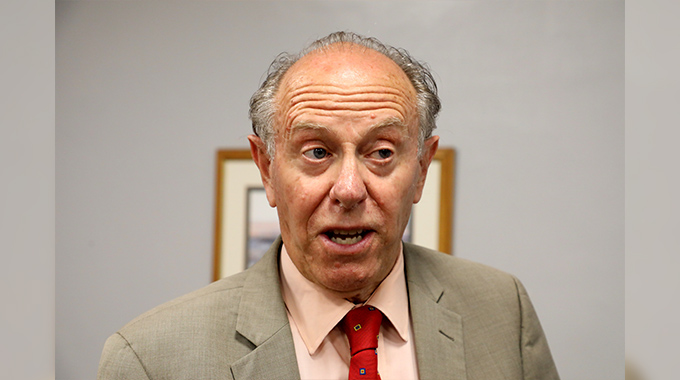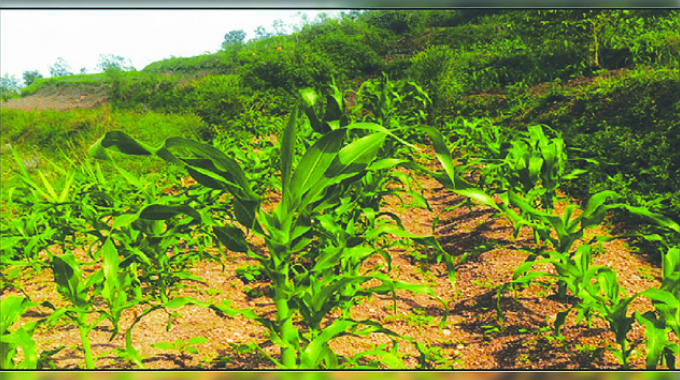Share ownership trust ‘best scheme since independence’

Pamela Shumba
COMMUNITY Share Ownership Trust Schemes (CSOTS) constitute one of the best indigenisation policies that the government introduced in the country since independence in 1980, Chief Mathema from Gwanda, Matabeleland South has said. Since the launch of the trust in Gwanda in 2012, over $1 million has been channelled towards improving the education sector, with schools in the district benefiting in the form of science laboratories.
The companies contributing towards the trust are Blanket Mine, Gaths Mine and Pretoria Portland Cement (PPC).
The trust has built science laboratory blocks under each of the five Chiefs in the district, in a bid to improve the learning conditions of children and promote science education.
Chief Mathema described the setting up of the community ownership schemes as a noble idea, with vast potential to empower communities if properly managed.
He said the Gwanda scheme was the most successful in the country, with various projects having been completed.
Through the scheme, each of the five chiefs in Gwanda district has received $50,000, each to develop schools in their areas, with the remaining $50,000 going to income generating projects in those communities.
Chief Mathema said the Gwanda CSOT/S was the most successful in the country, with various projects having been completed through the scheme, especially in the health and education sectors.
“This is the best scheme to be introduced by the government country since independence, at least for my community. The CSOT in Gwanda has tremendously improved the livelihoods of the community,” said Chief Mathema.
“Through the funds received from the scheme, we have managed to electrify a clinic in the district and connect piped water from Thuli River. This has incredibly improved services at the clinic, which happens to serve a majority of the people in the District.”
He said the scheme also funded a number of projects in different schools, especially infrastructure and furniture.
“Most rural schools in the district, which are far apart, have sub-standard infrastructure and furniture and this has always compromised the quality of education provided in the district,” said Chief Mathema.
“To enhance the quality of education, we used the CSOT/S to construct a state-of the-art laboratory at Sibona Secondary school. We also built a staff cottage at Simbumbumbu Primary School to create a conducive environment for our teachers.”
At Sibhula Secondary School, Chief Mathema added, the scheme provided furniture and other learning material for the pupils.
“We also constructed a classroom block at Maphane Secondary School and we’re planning to build more primary and secondary schools to reduce the distances walked by pupils, as we try to improve the education standards in the district,” he said.
“Through the same scheme, we’re planning to set aside $250, 000, which will be allocated to the chiefs and operate as a revolving fund to benefit youths and women who wish to establish income generating projects.”
Other projects which benefited from the CSOT/S in Gwanda include the construction of Silikwe clinic and the renovation of Sitezi clinic as well as the rehabilitation of Sukwi and Guyu irrigation schemes and purchasing of a drilling rig.
Councillor Mozitha Moyo from Lushongwe Village in Gwanda North also commended the CSOT/S, saying villagers had benefited from the scheme.
“We’re currently building a recreational hall in the village and two boreholes have been sunk through the CSOT/S. This development has gone a long way in improving access to clean water by villagers.
“We understand that a revolving fund will soon be established to alleviate poverty in the community through income generating projects. This is a noble idea and we hope that the money will be availed soon,” said Clr Moyo.
Guided by the Indigenisation and Economic Empowerment Act, the CSOT/S started in 2011 with the mining sector that committed to cede 10 percent of their profits to local communities.
The scheme came through the realisation that local communities, whose natural resources are being exploited, must have a say through guaranteed shareholding in the companies operating in their areas.
The companies are also expected to inject seed capital to enable the trusts to begin their functions.
With the involvement of traditional leaders where chiefs chair indigenisation committees in their localities on a rotational basis, the CSOT/S projects have been managed with transparency.









Comments